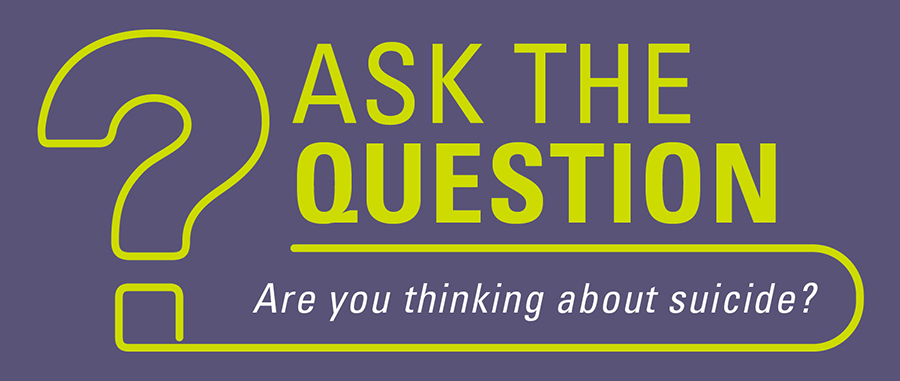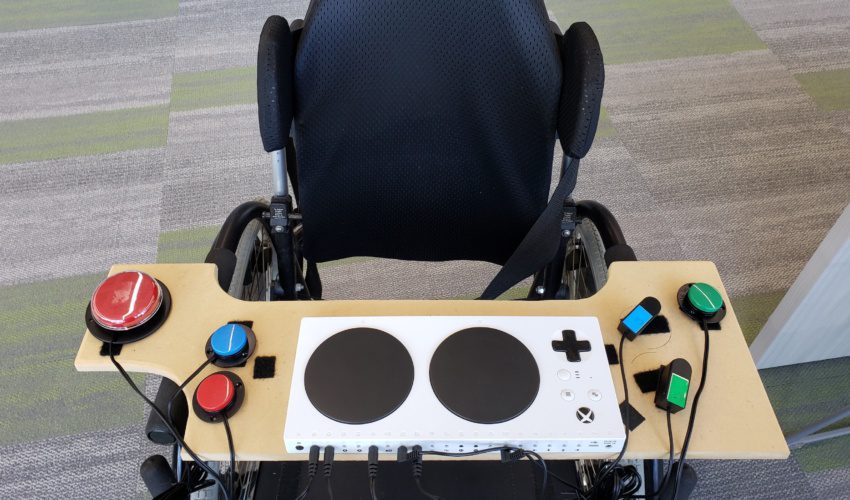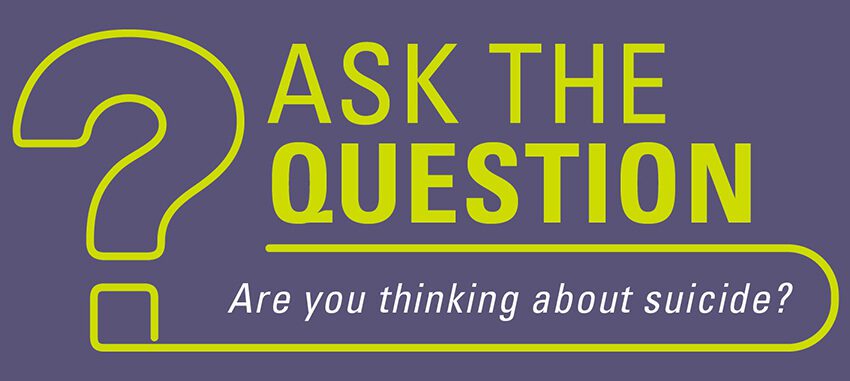Suicide prevention begins with asking the question
This paid piece is sponsored by Avera.
When someone shows warning signs of suicide, you want to help but it’s hard to know what to do or say. A critically important starting point is to simply ask the question: “Are you thinking about suicide?”
During September, which is Suicide Prevention and Awareness Month, Avera is launching a campaign centered around the theme, “Ask the Question.”
“Even before the pandemic, suicide, opioid abuse and drug overdose were already epidemics of concern in our society. The isolation and troubles of the pandemic just added to the stressors,” said Dr. Matthew Stanley, Avera clinical vice president for Behavioral Health. “Yet one of the silver linings of the pandemic is that we’re seeing conversations about mental health become more open and honest.”
- According to the American Foundation for Suicide Prevention (AFSP), suicide is the 12th leading cause of death in the United States.
- In 2020, 45,979 Americans died by suicide and there were 1.2 million suicide attempts.
- In 2021, South Dakota Department of Health reported 198 suicide deaths — the highest number since tracking began.
- South Dakota ranks eighth in the nation for suicide rate, with around 22 suicide deaths per 100,000 people.
- In a survey conducted by AFSP, 93 percent of adults surveyed in the United States think suicide can be prevented.
How to ask the question and get help
What can make a difference? Asking directly if someone is having thoughts of suicide, in a caring way can help provide hope, change the course of a life and prevent indescribable pain. This question is simply, “Are you thinking about suicide?”
Avera is encouraging the public to speak up and get help if they see the signs that someone might attempt suicide, for example, talking about feeling hopeless or having no reason to live.
It’s a myth that asking this question will somehow plant a seed in someone’s mind.
“People may already have had the thought, yet research tells us that asking the question often provides relief by giving the person an open door to respond honestly,” said Thomas Otten, assistant vice president of the Avera Behavioral Health Hospital.
If or when you do ask the question, be ready to listen compassionately and help the person find help. Resources are available at a special web page, Avera.org/AskTheQuestion
“Ask the Question” is an initiative fully funded by generous donors to the Avera Foundation.
Concern for our youth
Among kids 10-14 and adults 25-34, suicide is the second leading cause of death, and the third leading cause of deaths in ages 15-24, according to the Centers for Disease Control and Prevention (CDC).
“When we’re talking about suicide, this is one of the hardest things to take in. These are our brightest and best with the greatest potential. That’s just tragic,” Stanley said.
The stress of being a teen is hard for many kids to handle, especially if they have a mental health condition. Things like rejection, failure, breakups, trouble at school and family fights are especially hard.
Teens can take action very quickly without thinking things through. So if you’re concerned, it’s important to come alongside them with a willingness to have these important discussions.
One lesson learned during the pandemic was how important the sense of community and support is to our youth that they have at school. “When we removed that, it removed that safety net and gave kids more unstructured time on social media. We’ve seen anxiety and depression increase as a result,” Stanley said.
Concern for each other
Adults also suffer from the depression and anxiety, as well as burnout. “Depression, anxiety and burnout can all meld into one thing so it’s hard to recognize where the lines are in between these conditions,” Stanley said. “It’s tempting to think that I’m resilient. That it won’t happen to me.”
But whatever the underlying condition is, it can cause a person to begin to lose hope. Remember that resources are available to help anyone of any age in any circumstance. If you or someone you love is struggling, reach out for help.
“Every life is valuable and everyone can make a difference,” said Otten said. “You can make a difference.”
Resources in Sioux Falls include 24-hour Behavioral Health Urgent Care. Or call Behavioral Health Urgent Care at 800-691-4336 to find behavioral health services to fit your needs.
You can also call or text 988 to reach the Suicide & Crisis Lifeline for immediate help for you or someone you care about.









